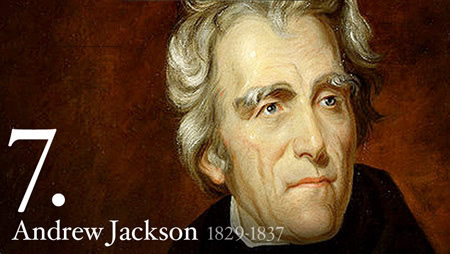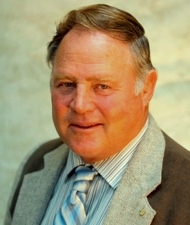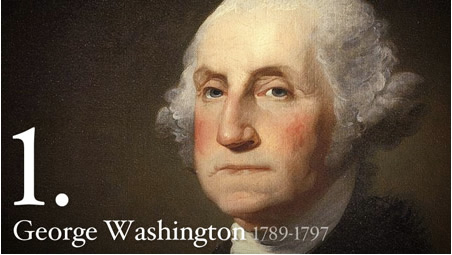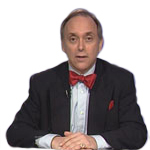President Andy Jackson is the only president in United States history to have paid off the national debt even though it didn't last. As for the central bankers and their worthless fiat paper, he said: "The bank is trying to kill me, but I will kill it!" He veotoed the recharter bill. This won a massive approval from the voters; in 1832 he polled more than 56 percent of the popular vote and almost five times as many electoral votes as Clay.
Sound Money Bill Imperative for the States of the Union
There is no "one size fits all" bill, each bill must be written to satisfy a state's statutes, below are examples:
- With permission, five pages from Dr. Edwin Vieira's book, Pieces of Eight: The Monetary Powers and Disabilities of the United States Constitution (Two volumes, 1670 pages, 6,598 footnotes):
1 - Model Congressional Act for the Protection of Person Who Receive, Pay, and Exchange Various Forms of United States Coin and Currency. (2 pages)
2 - Model State Act for the Moneitization of Silver and Gold Coin with Respect to Essential Sovereign Functions. (3 pages) -
Rep. Bobby Franklin has introduced this bill in the current session; Georgia State Legislature - HB 877 force federal taxes to be paid to the State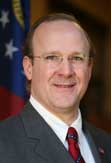
Rep. Bobby Franklin
(Note: Bobby died unexpectedly from a heart attack on July 26, 2011, at age 56. He left behind his wife of 27 years and three children.) - For more on the relationship between the states and the federal income tax, please watch this video where Constitutional attorney, Lowell Becraft, Jr., explains in succinct detail beginning 4:16 into the video.
- Sovereign State Depository
- Borrowing Currency into Circulation - Loaning currency into circulation is an instrument of silent warfare as is also expansion and contraction of the currency supply.
''Paper money has had the effect in your State that it ever will have, to ruin commerce -- oppress the honest, and open a door to every species of fraud and injustice.''"What Vieira subsequently shows is that the Constitution’s monetary strictures, like its strictures in so many other areas, have been evaded and destroyed by politicians and that the Supreme Court has chosen to turn a blind eye to the monetary shenanigans of Congress. The surprising conclusion of Pieces of Eight is that there is no legal authority for our present system of irredeemable fiat currency. “To introduce the FRN (federal reserve note) as a new paper currency in 1913, the government had to tie it by a right of redemption to the circulating money of that day, gold coin. And then, to transmogrify the FRN into a currency fit for limitless inflation, the government had to cut that tie to gold (and silver as well)… If the FRNs were not ‘dollars’ when they explicitly promised to pay in gold, they did not magically become ’dollars’ when they stopped promising to pay in anything at all, and statutorily can be redeemed in nothing better than base-metallic coin,” Vieira says.
"Inflation. There’s the key. The Constitution gave the United States a monetary system under which money could be coined by the government, but not created out of thin air. Once they had been freed from the Constitution’s restraints, politicians were able to spend money without the unpopular need to levy taxes. Absent the monetary mismanagement of our central bank, the Federal Reserve, our economy would have been spared the boom and bust cycles that we have endured at its clumsy hands. In the court of history, those who planned and acquiesced in the destruction of the Constitution’s monetary framework have much to answer for."
BIOS
Dr. Edwin VieiraEdwin Vieira, Jr., holds four degrees from Harvard: A.B. (Harvard College), A.M. and Ph.D. (Harvard Graduate School of Arts and Sciences), and J.D. (Harvard Law School).
For more than thirty years he has practiced law, with emphasis on constitutional issues. In the Supreme Court of the United States he successfully argued or briefed the cases leading to the landmark decisions Abood v. Detroit Board of Education, Chicago Teachers Union v. Hudson, and Communications Workers of America v. Beck, which established constitutional and statutory limitations on the uses to which labor unions, in both the private and the public sectors, may apply fees extracted from nonunion workers as a condition of their employment.
He has written numerous monographs and articles in scholarly journals, and lectured throughout the county. His most recent work on money and banking is the two-volume Pieces of Eight: The Monetary Powers and Disabilities of the United States Constitution (2002), the most comprehensive study in existence of American monetary law and history viewed from a constitutional perspective. www.piecesofeight.us
He is also the co-author (under a nom de plume) of the political novel CRA$HMAKER: A Federal Affaire (2000), a not-so-fictional story of an engineered crash of the Federal Reserve System, and the political upheaval it causes. www.crashmaker.com His latest book is: "How To Dethrone the Imperial Judiciary" ... and Constitutional "Homeland Security," Volume One
Dr. Lawrence Parks is the Executive Director of the Foundation for the Advancement of Monetary Education (FAME). He has broad experience in academia, in business, and in finance.
Dr. Lawrence ParksHe holds a Ph.D. in Operations Research from the Polytechnic University. Dr. Parks has studied the money issue for more than thirty years. His writings have appeared in Pensions & Investments, The Economist, The Washington Times, The Freeman, The Free Market, American Outlook, The United States Congressional Record, National Review, and others.
He is an active member of many civic and social organizations, a member of The United Association for Labor Education, The National Writer’s Union, UAW 1981, AFL-CIO, and he is a frequent speaker on the Fight for Honest Monetary Weights and Measures.
His focus is on how our present fiat monetary system operates to destroy savings, pensions and jobs and what to do about it.

